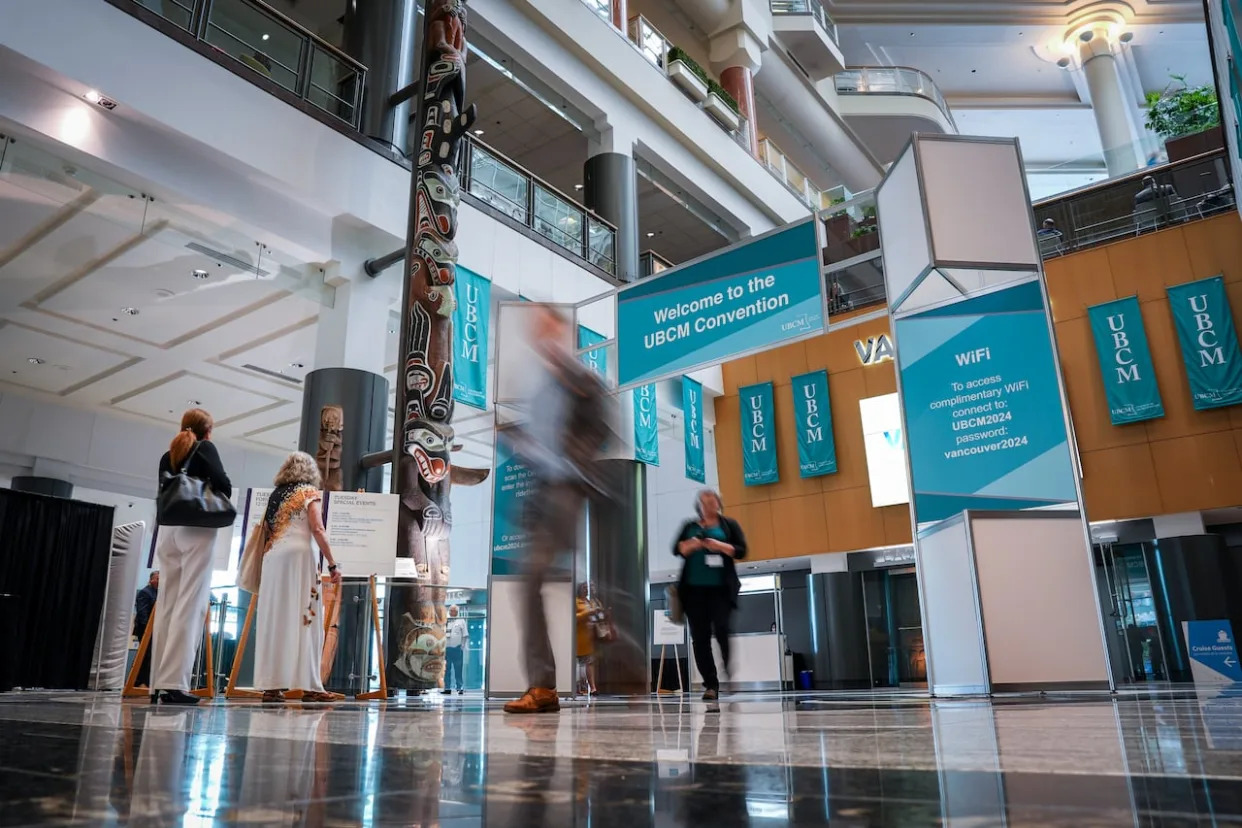
The annual convention for B.C.'s elected local officials hopes to deal with the elephant in the room for many councils across the province — respecting one another, getting along and finding consensus for their electors.
from the Union of B.C. Municipalities (UBCM) and the Local Government Management Association of British Columbia (LGMA) delves into the problem and consequences of rancour, disrespect and the resulting impasse that many local councils are facing as they try to govern together.

B.C. is the only province in Canada that does not require local governments to have a code of conduct — a set of rules that elected officials agree to act and govern by, along with consequences for non-compliance, such as reprimands or even docked pay.
"I think as a tool of good governance, many local governments in British Columbia have accepted codes of conduct are important to have in place," said Allan Neilson, a consultant who worked with the UBCM and the LGMA on the discussion paper. It lays out how governance in B.C.
is predicated on elected officials taking an oath of office on the founding governance principles of integrity, accountability, respect and collaboration and how codes of conduct can potentially ensure these principles. On the ground, though, some councillors have had difficult experiences, such as in Kamloops, where that city's elected officials have been at odds almost since they were elected two years ago. "Adults should be able to get along, but they aren't, and in Kamloops, we have used the code quite frequently," said Coun.
Dale Bass. Kamloops is among the 70 per cent of elected governments in B.C.
that have had some kind of code of conduct in place since 2022, when the province changed the legislation, according to the UBCM. The Community Charter doesn't force municipalities to enact codes of conduct or appoint integrity commissioners but rather " "one and explain to the electorate why it may not choose to have one. The discussion paper says it could be time for B.
C. to change this, recognizing a slew of resolutions at the UBCM in recent years calling for stronger provincial measures, one of which is a provincially-appointed integrity and ethics commissioner to police local councils. "All of the resolutions underscored the growing sense on the part of local governments across the province that incidents of less than responsible conduct among elected officials were becoming more prevalent and intractable," reads the discussion paper.
B.C. Municipal Affairs Minister Anne Kang at the UBCM convention in Vancouver on Wednesday, Sept.
18, 2024, addressed dysfunction among local elected officials in the province. (Dillon Hodgin/CBC News) The paper notes that dysfunction can have serious consequences. Local governments that become "mired" in internal conflict may experience a loss of legitimacy, low voter turnout, fewer viable candidates, and low morale among staff, who may leave, it reads.
B.C. Municipal Affairs Minister Anne Kang has made resources available to communities, such as advisers, to help councils work through their problems on their own.
She said she is listening to the calls for more provincial oversight and encourages feedback to the discussion paper, which is open until Nov. 1. "There's nothing predetermined right now," she said.
"It's very important for me to hear from everyone so that we can have a balanced approach and come up with the best solution." This summer, B.C.
's Ombudsperson called for more provincial oversight on matters of conduct at the local level, arguing that local politicians shouldn't be the ones to define codes of conduct or put in place municipal integrity commissioners when they can change those rules anytime they want. Meanwhile, elected officials in communities that don't yet have a code of conduct say they are meaningless if elected officials willingly or belligerently choose to ignore them. Spallumcheen Mayor Christine Fraser says local councils must be willing to work with one another with respect and civility to govern effectively.
(Dillion Hodgin/CBC News) Christine Fraser, the mayor of Spallumcheen in the Okanagan, said her council decided to do respectful workplace training instead of adopting a code of conduct. "We have a council that is very respectful of each other," she said. "We can still have healthy debates and be able to go home afterwards and all be friends.
" Fraser said a third-review process is necessary for councils with entrenched problems but worries that if it comes from Victoria, it might not cater to the individual needs of communities and their personalities..







-and-Aiden-Upward-produced-a-65-run-partnership.jpeg?auto=webp&width=1200)






